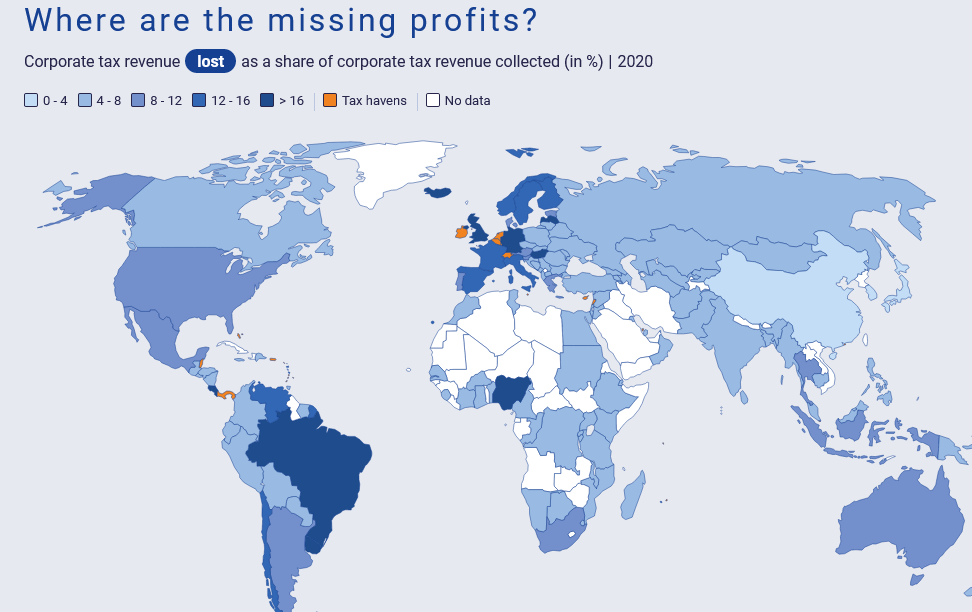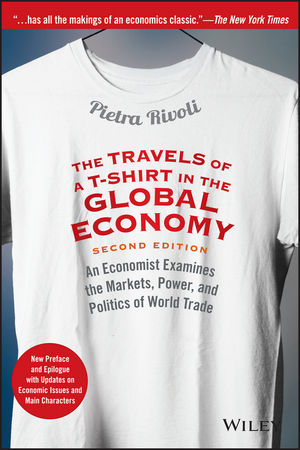Home
| About
| Mine Tracker
| RSS
| Footer
▄▄▄▄▄▄▄▄▄▄▄▄▄▄▄▄▄▄▄▄▄▄▄▄▄▄▄▄▄▄▄▄▄▄▄▄▄▄▄▄▄▄▄▄▄▄▄▄▄▄▄▄▄▄▄▄▄▄▄▄▄▄▄▄▄▄▄▄▄▄▄▄▄▄▄▄▄▄▄▄▄▄▄▄▄▄▄▄▄▄▄▄▄▄▄▄ █▄▄░▄▄█░▄▄▀█░▄▄▀█▀▄▀█░▄▄███░▄▄▀█░▄▄▀█░▄▀███▄▄░▄▄█░▄▄▀█░▄▄▀█▀▄▀█░▄▄█░▄▄▀█░▄▄▀██▄██░███▄██▄░▄█░██░ ███░███░▀▀▄█░▀▀░█░█▀█░▄▄███░▀▀░█░██░█░█░█████░███░▀▀▄█░▀▀░█░█▀█░▄▄█░▀▀░█░▄▄▀██░▄█░███░▄██░██░▀▀░ ███░███▄█▄▄█▄██▄██▄██▄▄▄███▄██▄█▄██▄█▄▄██████░███▄█▄▄█▄██▄██▄██▄▄▄█▄██▄█▄▄▄▄█▄▄▄█▄▄█▄▄▄██▄██▀▀▀▄ ▀▀▀▀▀▀▀▀▀▀▀▀▀▀▀▀▀▀▀▀▀▀▀▀▀▀▀▀▀▀▀▀▀▀▀▀▀▀▀▀▀▀▀▀▀▀▀▀▀▀▀▀▀▀▀▀▀▀▀▀▀▀▀▀▀▀▀▀▀▀▀▀▀▀▀▀▀▀▀▀▀▀▀▀▀▀▀▀▀▀▀▀▀▀▀▀
The Atlas of the Offshore World
https://atlas-offshore.world/

The Atlas of the Offshore World is a new effort by the EU Tax Observatory to inform the global debate around international tax evasion and avoidance. It offers up-to-date information about the dynamic of profit shifting by multinational companies and offshore wealth.
https://atlas-offshore.world/

The Atlas of the Offshore World is a new effort by the EU Tax Observatory to inform the global debate around international tax evasion and avoidance. It offers up-to-date information about the dynamic of profit shifting by multinational companies and offshore wealth.
True Price experiment at Albert Heijn To Go
https://static.ah.nl/binaries/ah/content/assets/ah-nl/core/about/duurzaamheid/paper-true-price-experiment-albert-heijn-to-go-june-4th.pdf
Albert Heijn is the market leader in supermarkets in The Netherlands. The purpose of Albert Heijn is: Together we make eating better the easy choice. For everyone. Albert Heijn wants to make a meaningful contribution to a healthy, social and sustainable society. If we want to preserve the value of food and drink for future generations, the food system will need a major overhaul. That’s why Albert Heijn wants to be crystal clear about where food comes from, how it’s made and what its ingredients are. We also want to reduce the impact of our products so that our customers can easily make sustainable choices and never doubt whether they’re doing the right thing. True Price is one of the ideas to give better insight to customers to help them make a more sustainable choice.
https://static.ah.nl/binaries/ah/content/assets/ah-nl/core/about/duurzaamheid/paper-true-price-experiment-albert-heijn-to-go-june-4th.pdf
Albert Heijn is the market leader in supermarkets in The Netherlands. The purpose of Albert Heijn is: Together we make eating better the easy choice. For everyone. Albert Heijn wants to make a meaningful contribution to a healthy, social and sustainable society. If we want to preserve the value of food and drink for future generations, the food system will need a major overhaul. That’s why Albert Heijn wants to be crystal clear about where food comes from, how it’s made and what its ingredients are. We also want to reduce the impact of our products so that our customers can easily make sustainable choices and never doubt whether they’re doing the right thing. True Price is one of the ideas to give better insight to customers to help them make a more sustainable choice.
True Price
https://trueprice.org/
We envision a world where all products are sold for a true price. If a product is sold for a true price, then no damage is done to people or to nature: it is fully sustainable. If all products are sold for a true price, then the global economy is sustainable. We outline the philosophy behind our vision in the True Price Manifesto. We are working towards this vision by developing and releasing open-source methodology documentation.
https://trueprice.org/
We envision a world where all products are sold for a true price. If a product is sold for a true price, then no damage is done to people or to nature: it is fully sustainable. If all products are sold for a true price, then the global economy is sustainable. We outline the philosophy behind our vision in the True Price Manifesto. We are working towards this vision by developing and releasing open-source methodology documentation.
Article: Can Cybersocialist Planning Become a Reality?
https://jacobin.com/2023/04/cybersocialism-economic-planning-marxism-information-theory-econophysics
The digital revolution of recent decades allows for much more developed resource allocation than was possible in the 20th century. Cybersocialist planning, some argue, can provide for a rational allocation of resources, under real democratic control.
https://jacobin.com/2023/04/cybersocialism-economic-planning-marxism-information-theory-econophysics
The digital revolution of recent decades allows for much more developed resource allocation than was possible in the 20th century. Cybersocialist planning, some argue, can provide for a rational allocation of resources, under real democratic control.
Article: Cybernetics of the Future
https://cosmonautmag.com/2022/07/glushkov-and-his-ideas-cybernetics-of-the-future-by-vasiliy-pikhorovich/
As capitalist waste leads to more and more obviously ecological devastation, we communists must be louder in proclaiming that another world is possible. Opposed to the anarchy of the market is the idea of a planned economy, and more specifically a socialist one. The centennial objection to planning is that it is impossible to plan something as complex as the economy that results from millions of agents making billions of transactions. However, with computers that are becoming smarter every day and increasingly capable of solving some of the most complex problems in the world, why should economic planning be excluded from these advances?
https://cosmonautmag.com/2022/07/glushkov-and-his-ideas-cybernetics-of-the-future-by-vasiliy-pikhorovich/
As capitalist waste leads to more and more obviously ecological devastation, we communists must be louder in proclaiming that another world is possible. Opposed to the anarchy of the market is the idea of a planned economy, and more specifically a socialist one. The centennial objection to planning is that it is impossible to plan something as complex as the economy that results from millions of agents making billions of transactions. However, with computers that are becoming smarter every day and increasingly capable of solving some of the most complex problems in the world, why should economic planning be excluded from these advances?
Paper: Price-Setting Power in Global Value Chains
https://link.springer.com/article/10.1057/s41287-022-00543-z

This paper calls for integrating price-setting power and related uneven exposure to price risks into the analysis of governance in global value chains (GVCs) as it adds to other power dimensions in producing unequal distributional outcomes. This is shown for the cocoa GVC, in which—unlike in today’s mostly liberalised market structures—the world’s top cocoa-producing countries, Côte d’Ivoire and Ghana, pursue price stabilisation measures. These measures address intra-seasonal producer price volatility, and recent collaboration has achieved a living-income differential on top of export prices, but such measures do not shield export and producer prices from inter-seasonal variations in world prices determined on commodity derivatives markets. Based on interviews with actors along the cocoa GVC, we argue that this is related to the price-setting power of ‘grinder-traders’ and the key role of financial hedging and trading on commodity derivatives markets in their business strategies.
From
https://link.springer.com/article/10.1057/s41287-022-00543-z

This paper calls for integrating price-setting power and related uneven exposure to price risks into the analysis of governance in global value chains (GVCs) as it adds to other power dimensions in producing unequal distributional outcomes. This is shown for the cocoa GVC, in which—unlike in today’s mostly liberalised market structures—the world’s top cocoa-producing countries, Côte d’Ivoire and Ghana, pursue price stabilisation measures. These measures address intra-seasonal producer price volatility, and recent collaboration has achieved a living-income differential on top of export prices, but such measures do not shield export and producer prices from inter-seasonal variations in world prices determined on commodity derivatives markets. Based on interviews with actors along the cocoa GVC, we argue that this is related to the price-setting power of ‘grinder-traders’ and the key role of financial hedging and trading on commodity derivatives markets in their business strategies.
From
Adam Tooze on Deglobalisation
On deglobalisation and polycrisis
"Imagine if China was attacking Apple’s manufacturing network, as the United States is attacking not just Huawei but the entire sector of high-tech microelectronics in China. And then imagine that Beijing blandly declared that this should not be taken as an attack on America’s economic development in general; just on the bits that matter for strategic purposes. Imagine how Washington and the American political system would react."
On deglobalisation and polycrisis
"Imagine if China was attacking Apple’s manufacturing network, as the United States is attacking not just Huawei but the entire sector of high-tech microelectronics in China. And then imagine that Beijing blandly declared that this should not be taken as an attack on America’s economic development in general; just on the bits that matter for strategic purposes. Imagine how Washington and the American political system would react."
We assume the temporal is permanent
https://en.wikipedia.org/wiki/The_Economic_Consequences_of_the_Peace
https://en.wikipedia.org/wiki/The_Economic_Consequences_of_the_Peace
The power to become habituated to his surroundings is a marked characteristic of mankind. Very few of us realize with conviction the intensely unusual, unstable, complicated, unreliable, temporary nature of the economic organization by which Western Europe has lived for the last half century. We assume some of the most peculiar and temporary of our late advantages as natural, permanent, and to be depended on, and we lay our plans accordingly. On this sandy and false foundation we scheme for social improvement and dress our political platforms, pursue our animosities and particular ambitions, and feel ourselves with enough margin in hand to foster, not assuage, civil conflict in the European family.This is how Maynard Keynes' The Economic Consequences of Peace (1919) starts. After more than a 100 years this seems a good place to start in our own analysis of our current complacency about the inevitablity, reliability and security of global supply chains that structure our trade, economic, political and social environment today.
Book: The Travels of a T-Shirt in the Global Economy: An Economist Examines the Markets, Power, and
https://www.wiley.com/en-us/The+Travels+of+a+T+Shirt+in+the+Global+Economy%3A+An+Economist+Examines+the+Markets%2C+Power%2C+and+Politics+of+World+Trade+New+Preface+and+Epilogue+with+Updates+on+Economic+Issues+and+Main+Characters%2C+2nd+Edition-p-97

By title ‘The Travels of a T-Shirt in the Global Economy’, (Pietra Rivoli, 2005) sound like a potential lost classic of traceability. Unfortunately, it is not. A t-shirt is bought in Florida, screen-printed in Florida from a shirt made from Texan cotton in Shanghai. That is the coat hanger for the narrative, but of little substance to the overall book. The debates on the pros and cons of globalism are still here but have changed so much that the context for this book seems Jurassic. What we do get is a particular argument on how nations develop economically and that the bottom of the race to the bottom is progressively less deep. Long before food and energy textile supply chains achieved global reach and the results on working conditions have always been brutal. Rivoli foresaw that the apparel industry would eventually leave China. The Rana Plaza tragedy however shows how the deep the bottom can still be. There are interesting chapters on the ways the US textile sector managed to escape free market conditions and it ends with an overview of the 2nd life of donated clothing in Africa. It seems 2005 is long time ago.
https://www.wiley.com/en-us/The+Travels+of+a+T+Shirt+in+the+Global+Economy%3A+An+Economist+Examines+the+Markets%2C+Power%2C+and+Politics+of+World+Trade+New+Preface+and+Epilogue+with+Updates+on+Economic+Issues+and+Main+Characters%2C+2nd+Edition-p-97

By title ‘The Travels of a T-Shirt in the Global Economy’, (Pietra Rivoli, 2005) sound like a potential lost classic of traceability. Unfortunately, it is not. A t-shirt is bought in Florida, screen-printed in Florida from a shirt made from Texan cotton in Shanghai. That is the coat hanger for the narrative, but of little substance to the overall book. The debates on the pros and cons of globalism are still here but have changed so much that the context for this book seems Jurassic. What we do get is a particular argument on how nations develop economically and that the bottom of the race to the bottom is progressively less deep. Long before food and energy textile supply chains achieved global reach and the results on working conditions have always been brutal. Rivoli foresaw that the apparel industry would eventually leave China. The Rana Plaza tragedy however shows how the deep the bottom can still be. There are interesting chapters on the ways the US textile sector managed to escape free market conditions and it ends with an overview of the 2nd life of donated clothing in Africa. It seems 2005 is long time ago.
Economy-wide material flow accounts (EW-MFA)
https://en.wikipedia.org/wiki/Economy-wide_material_flow_accounts
Economy-wide material flow accounts (EW-MFA) is a framework to compile statistics linking flows of materials from natural resources to a national economy.
https://en.wikipedia.org/wiki/Economy-wide_material_flow_accounts
Economy-wide material flow accounts (EW-MFA) is a framework to compile statistics linking flows of materials from natural resources to a national economy.
Book: Red Plenty
https://www.theguardian.com/books/2010/aug/08/red-plenty-francis-spufford
Set in Soviet Russia, these vivid short stories highlight the failings of planned economies. What else is Supply Chain Management than a uniquely Soviet science reapplied?
https://www.theguardian.com/books/2010/aug/08/red-plenty-francis-spufford
Set in Soviet Russia, these vivid short stories highlight the failings of planned economies. What else is Supply Chain Management than a uniquely Soviet science reapplied?